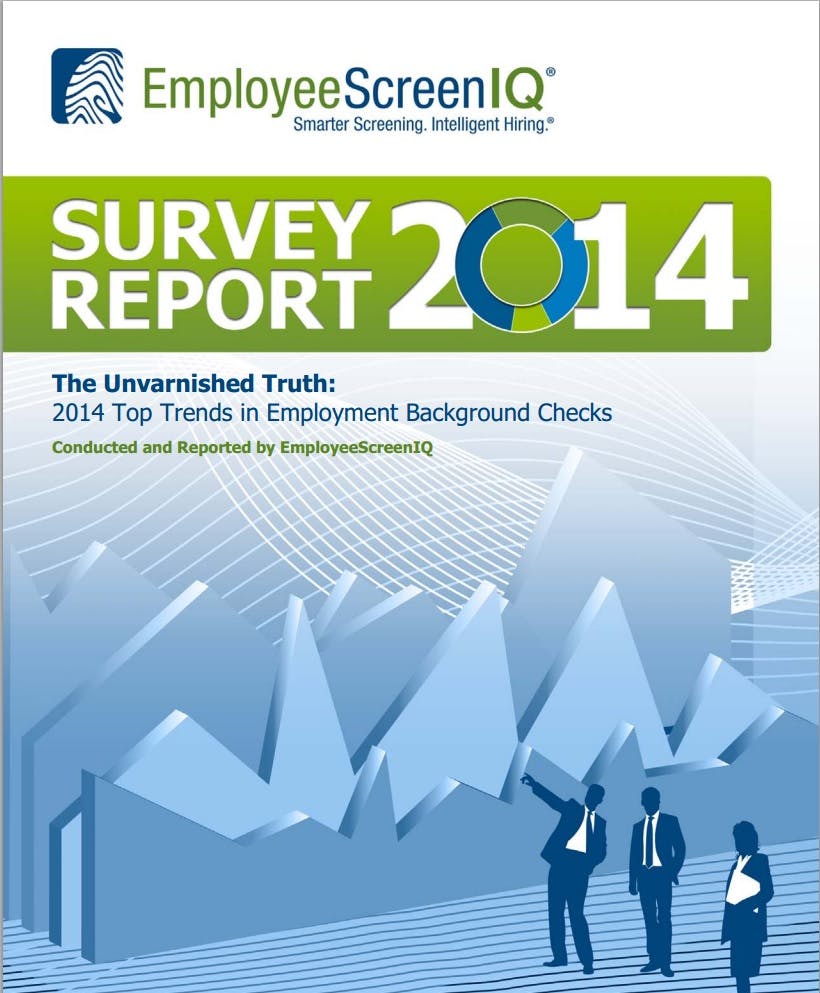Nearly 600 human resources professionals told EmployeeScreenIQ about how they use employment background checks to make hiring decisions and their candid feedback is detailed in the just-released, fifth annual survey of U.S. based employers.
The new report looks at how companies manage the process of employment screening, their practices concerning Fair Credit Reporting Act (FCRA), Equal Opportunity Employment Commission (EEOC) guidance, candidates’ self-disclosure of criminal records and how they address adverse findings.
In the past few years, the EmployeeScreenIQ Trends Survey has become a benchmark many employers use to evaluate their background screening policies and practices. This year’s survey provides a unique cross-section of opinions and insights from an assortment of organizations and is critical for HR professionals that want to learn about what their industry peers are doing.
What might disqualify a candidate from employment
Here’s one of the top findings from the report: What Types of Conviction Records Might Disqualify a Candidate From Employment?
- Crimes of violence – felony convictions — 88 percent;
- Crimes of theft and dishonesty — felony convictions — 82 percent;
- Drug offenses — felony convictions — 68 percent;
- Crimes of theft and dishonesty — misdemeanor convictions — 52 percent;
- Crimes of violence – misdemeanor convictions — 52 percent;
- Drug offenses — misdemeanor convictions — 35 percent;
- Minor infractions and/or driving offenses — 13 percent;
- Charges that don’t result in a conviction — 8 percent.
Some misdemeanors matter to employers
As we have reported from past surveys, it’s not surprising that respondents expressed greater concern over convictions (particularly felony convictions) related to crimes of violence, theft, and dishonesty. However, there is a significant decrease in concerns related to drug offenses.
Based on the findings, the bottom line is that an overwhelming majority of respondents are hesitant to hire candidates who have felony convictions in their past.
And while felonies are seemingly of greatest concern, this data also supports the notion that misdemeanor convictions matter to employers. Nearly half of all employers are concerned about misdemeanor convictions related to crimes of violence or theft and dishonesty.
Notably, the percentages in almost every category rose over those of last year’s results. This may indicate a generally heightened sense of awareness and/or concern regarding incidents of workplace violence, employee theft, and negligent hiring lawsuits.
The battle over hiring flexibility
An interesting takeaway from the respondents’ comments for this question is that many employers desire to be more flexible in their hiring decisions. However, external factors such as federal and state regulations or client contractual obligations sometimes hinder their flexibility. This is somewhat ironic, as some governmental bodies are going after employers for being inflexible, while others are creating rules for stricter hiring standards.
For more findings from 2014 Survey Report, The Unvarnished Truth: 2014 Top Trends in Employment Background Checks, find a link to the full report here.
The 26-page report examines a range of potentially contentious issues hiring organizations face. Most notably, the report reveals the impact of criminal records on hiring and the practice of asking candidates for self-disclosure as even more states and municipalities adopt “ban the box” legislation.
This was originally published on the EmployeeScreen IQ blog.
